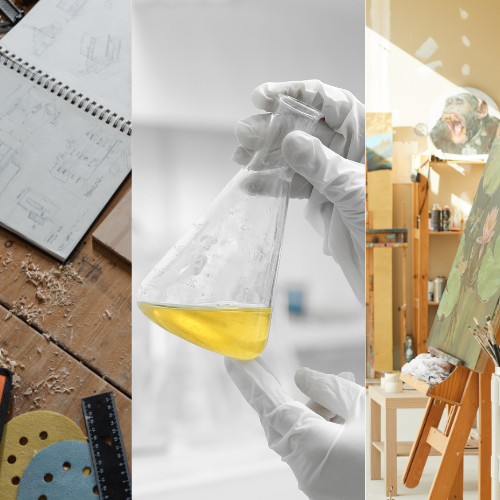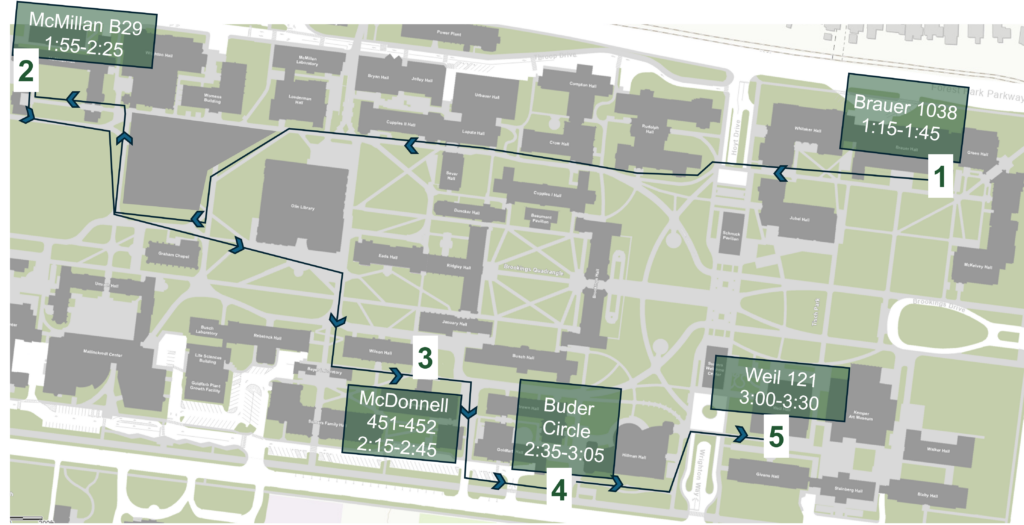
Center for the Environment
Learn about the people, places, and processes that contribute to the rich environmental landscape at WashU. This curated series of lab and studio tours will highlight the various modes and methods of various disciplines across the Danforth Campus.
The crawl will consist of a progression of lab and studio open houses throughout the Danforth campus. Each stop will be approximately 15 minutes.
The crawl is open to all members of the WashU community and the public.
Please register below if you plan to join the full Crawl. If registration is closed, please email Nicole Angeli angelin@wustl.edu to be added to a waitlist.
Join for the full Crawl
Starting Location | 1:15pm: Brauer Hall 1038
Concluding Location | 3:30pm: Weil Hall at the End-of-Week Reception
– or –
Drop-in on the Crawl
Join the crawl in-progress or drop-in for individual stops – check out the schedule below.
Open House Schedule and Locations

Host: Dan Giammar
Location: Brauer Hall, Room 1038
In the Aquatic Chemistry Laboratory we are investigating processes that affect the behavior of metals in various aquatic environments. We have current projects focused on lead in drinking water, an emerging treatment technology for arsenic and other contaminants, and the mobility of rare earth elements in natural environments.
Host: Xinyi Liu
Location: B29 McMillan Hall
The Laboratory for the Analysis of Early Food-Webs is involved in a range of multidisciplinary research projects focused on reconstructing ancient food-webs. Lab isotope scientists, archaeologists and archaeobotanists work closely to address questions about diet and nutrition, palaeoclimate and palaeoenvironment. Some of our recent projects have included analysis of movement of ancient crops across the Eurasian continent, climate variability in Africa, human settlement of marginal environments on the Tibetan Plateau and the Negev desert, and llama herding in Peru.
Host: Rachel Penczykowski
Location: McDonnell Hall 451-452
The Penczykowski Lab studies the ecology and evolution of infectious diseases using plants and their fungal pathogens as our focal study organisms. Our current research focuses on effects of climate and urbanization on interactions between common weedy plants (Plantago spp.) and their powdery mildew pathogens. We use a combination of field-, greenhouse-, laboratory-, and mathematical modeling-based approaches in our research.
Host: Pam Begay and Manasseh Begay
Location: Buder Circle
The Kathryn M. Buder Center for American Indian Studies empowers and prepares Native students for professional leadership in Native communities through social work education. The center’s mission is to become a premier program for the education of Native American Master of Social Work students to practice in tribal and urban settings.
Host: College of Art and College of Architecture Faculty
Location: Weil 121/122
As design professionals, creativity is always central to our work in the Sam Fox School. Faculty from the College of Art and College of Architecture will share research in recycled and repurposed fabrics for fashion, experiments in structural bamboo, planning for a more equitable and sustainable future for St. Louis through urban design, exploring the complexity of soils, and student work informed by a home-made heliodon.
Accessibility: The crawl will cover roughly 1 mile and will include stairs and walking through indoor and outdoor spaces. In case of inclement weather, organizers will email registered attendees with any updates, changes, or cancelations.
The crawl is part of Environmental Research & Creativity Week Feb. 24-28, a series of events hosted by the WashU Center for the Environment and its partners to showcase the interdisciplinary environmental work at the university.